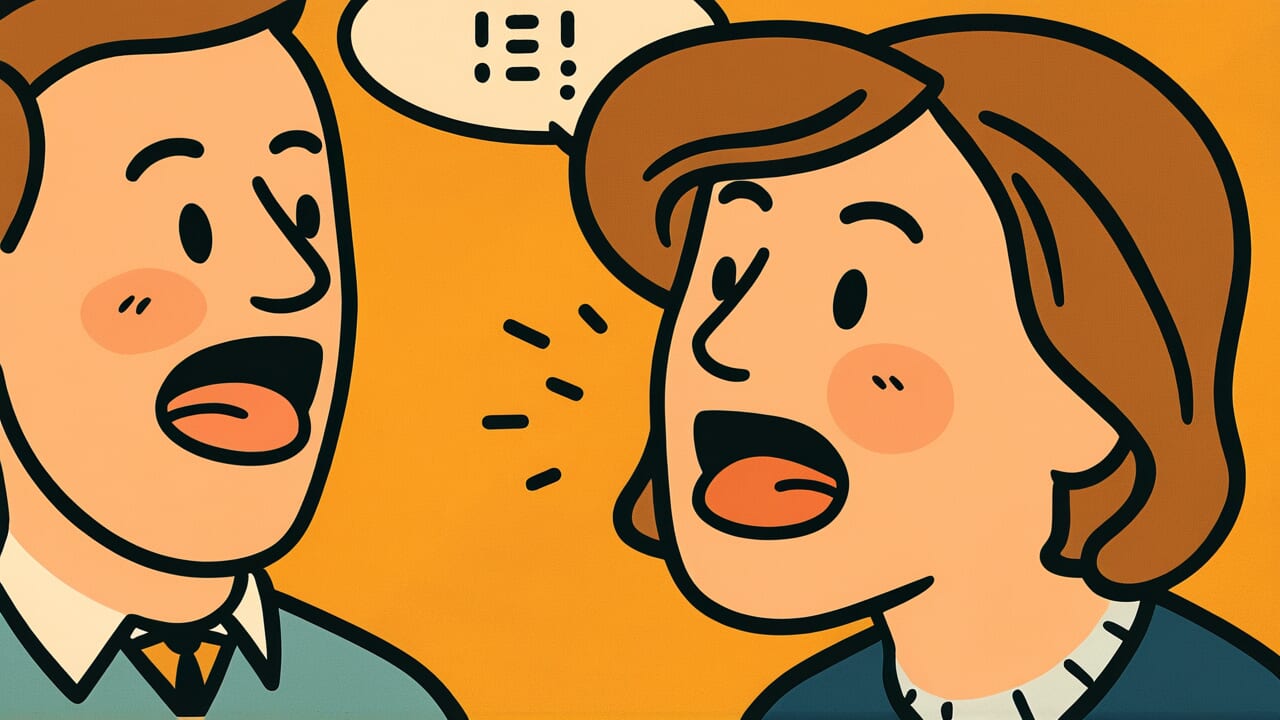How to Read “Two mouths are too many to feed, but one mouth can get by”
Ninin-guchi wa sugiru ga hitori-guchi wa sugosenai
Meaning of “Two mouths are too many to feed, but one mouth can get by”
This proverb expresses a seemingly strange economic truth. Living costs for two people can somehow be managed, but even covering expenses for one person alone is difficult.
At first glance, you’d think two people would cost more than one, right? But in reality, when two people cooperate in life, the burden per person becomes lighter.
Fixed costs like rent and utilities can be shared between two people. Buying groceries for two is more economical than for one. Most importantly, if one person gets sick or loses their job, the other can provide support.
On the other hand, living alone means bearing all expenses by yourself. If you get sick and can’t work, your life quickly becomes unsustainable.
This proverb is often used when encouraging marriage or family formation. It carries the encouraging message: “Life becomes easier when two people cooperate rather than one person struggling alone.”
Even today, the wisdom in these words is being reevaluated when explaining the benefits of share houses and communal living.
Origin and Etymology
The exact literary origin of this proverb is unclear. However, it’s believed to have emerged from the everyday life experiences of common people during the Edo period.
Looking at the structure of the phrase, you’ll notice the character for “mouth” is used. This doesn’t simply mean a mouth for eating. It’s a traditional Japanese expression representing “the number of people to support.”
“Two mouths” means living expenses for two people. “One mouth” means living expenses for one person.
The background of this expression likely relates to the economic structure of the Edo period. In the lives of common people back then, cooperating as a couple or family was actually more economically efficient than living alone.
Housing costs, fuel expenses, and tools didn’t change much whether used by one or two people. Also, when someone got sick or injured and couldn’t work, one person would lose all income. But with two people, one could support the other.
Furthermore, in that society, single people reportedly faced practical disadvantages. They had difficulty renting housing or gaining trust.
This life wisdom crystallized into this proverb. Though seemingly contradictory, it’s a phrase born from common people’s lived experience, containing deep economic rationality.
Usage Examples
- I told my friend who was hesitating about marriage that “two mouths are too many to feed, but one mouth can get by,” so getting together might be easier
- My uncle keeps saying “two mouths are too many to feed, but one mouth can get by” and urging me to get married soon
Universal Wisdom
This proverb reveals the essential value of “cooperation” in human survival. Why is life easier for two than for one?
It’s not just about economic calculations. Humans are creatures who become stronger by supporting each other.
Living alone means bearing all risks by yourself. Health, income, emotional support—everything rests on your shoulders alone.
No matter how strong you are, you can get sick. No matter how capable you are, you can fail. In those moments, whether someone is there to support you makes a huge difference in life.
Since ancient times, humanity has survived by forming groups, families, and communities. This isn’t because humans are weak.
Rather, it’s because we’re intelligent beings who can reach heights impossible for individuals through cooperation.
This proverb also contains the gentle message: “You don’t have to try so hard alone.” Joining forces with someone isn’t weakness.
It’s actually a human strength, our ancestors teach us. The deep understanding of humanity from people who survived difficult times is condensed here.
When AI Hears This
When you live alone and buy a pot, that pot can only make food for one. But with two people, the same pot makes food for two. This is what game theory calls “non-additivity.”
In other words, 1+1 doesn’t equal 2—it ends up being about 1.5. A phenomenon where things become more efficient.
What’s interesting here is the reverse problem. When you’ve been using a pot, house, or heating with two people, you can’t cut them in half when you become one.
Rent doesn’t become half. A half-sized refrigerator drastically reduces food choices. This is what economics calls “indivisibility”—the existence of a minimum unit that cannot be divided further.
Human life actually contains many such indivisible fixed costs. Housing, cooking equipment, basic utility charges. They cost almost the same whether for one or two people.
In cooperative game theory, sharing such fixed costs among multiple people is called a “cost-sharing game.” With two people, fixed costs can be split, dramatically lowering per-person costs.
But alone, you must bear these fixed costs entirely. Moreover, you only have one person’s means of earning income.
The “leap from zero to one”—establishing a living foundation as the first person—actually has the worst cost-performance. This proverb strikes at the core of game theory: efficiency through cooperation is actually maximized with “the second person’s participation.”
Lessons for Today
What this proverb teaches modern people is the practical power of “connection.”
Modern society emphasizes individual independence and self-reliance. That’s certainly important, but this proverb teaches another truth.
Cooperating with someone makes possible what was impossible alone.
This isn’t limited to marriage. There are various forms of cooperation today: roomsharing, business partners, project teams, local communities.
Splitting rent, complementing skills, sharing information, supporting each other emotionally. These cooperative relationships enrich each person’s life and expand possibilities.
Especially in today’s highly uncertain world, the wisdom of this proverb shines brighter. Don’t carry everything alone—join forces with someone you trust.
That’s not dependence. It’s a smart way of living that leverages each other’s strengths.
Around you, there are surely relationships where you can cooperate. Don’t try too hard alone. By joining hands with someone, life becomes richer and more stable.



Comments